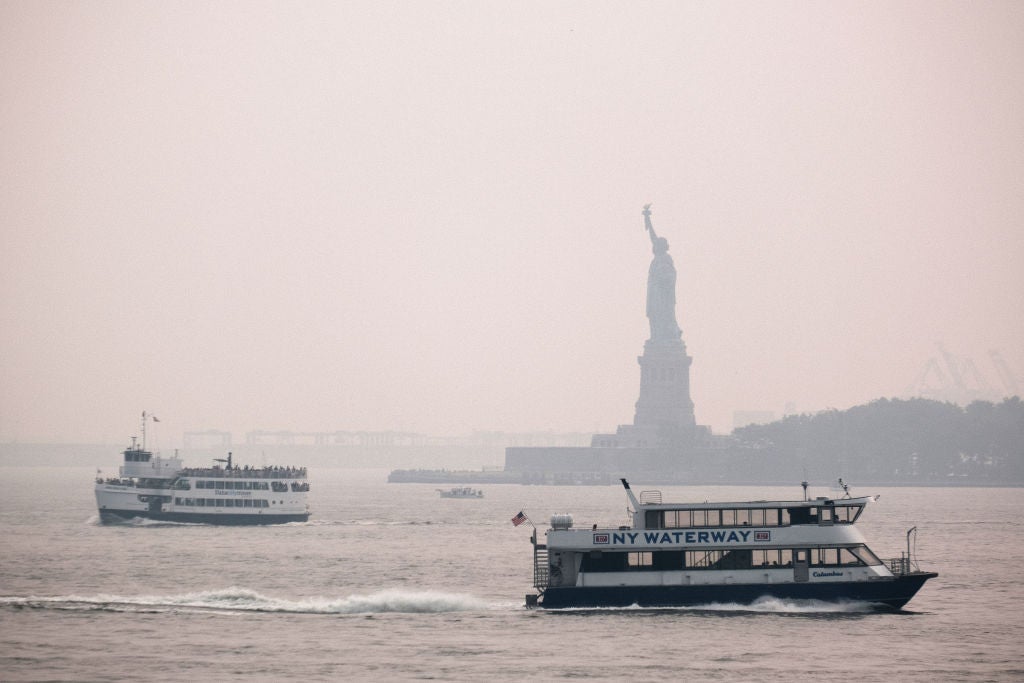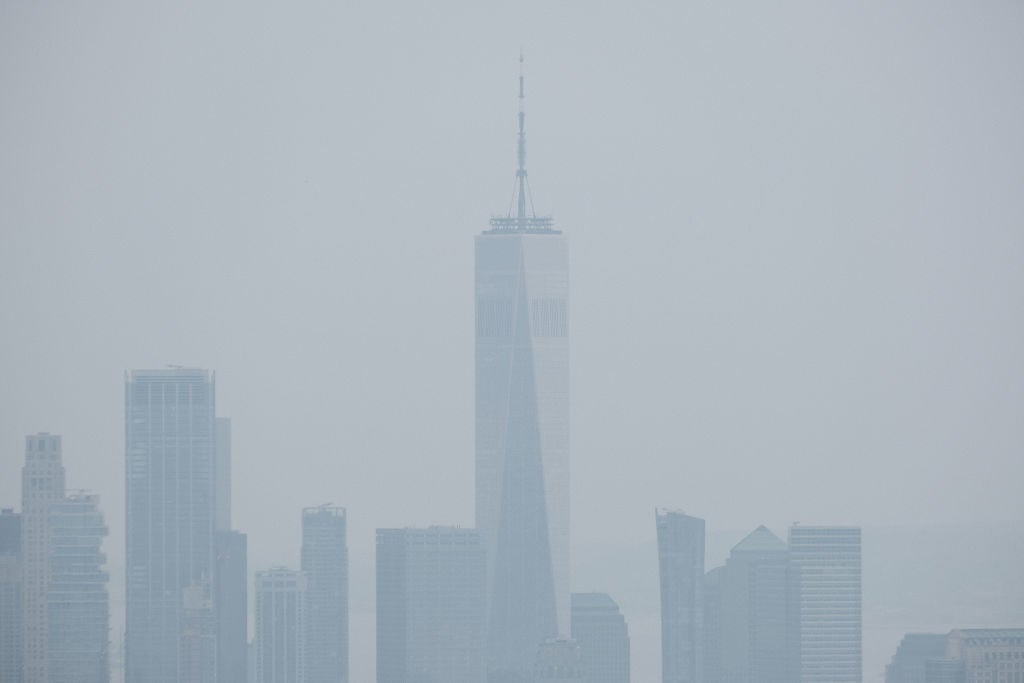New York City air quality among world’s worst as US cities shrouded in smoke from wildfires
Blazes in 13 western states, including Oregon, California, Nevada, are causing pollution levels to rise in major East Coast cities
Your support helps us to tell the story
From reproductive rights to climate change to Big Tech, The Independent is on the ground when the story is developing. Whether it's investigating the financials of Elon Musk's pro-Trump PAC or producing our latest documentary, 'The A Word', which shines a light on the American women fighting for reproductive rights, we know how important it is to parse out the facts from the messaging.
At such a critical moment in US history, we need reporters on the ground. Your donation allows us to keep sending journalists to speak to both sides of the story.
The Independent is trusted by Americans across the entire political spectrum. And unlike many other quality news outlets, we choose not to lock Americans out of our reporting and analysis with paywalls. We believe quality journalism should be available to everyone, paid for by those who can afford it.
Your support makes all the difference.New York’s Air Quality Index reading surged to 157 in Manhattan, after being engulfed in smoke from wildfires on the West Coast, more than 2000 miles away.
Below 100 is a satisfactory reading in the Worldwide Air Quality Index, but air quality of over 170 in parts of New York on Tuesday was nine times above exposure recommendations, according to the World Health Organization, and worse than levels in Lima in Peru and Jakarta, Indonesia.
Due to the pollution levels, local authorities told vulnerable residents, especially those with breathing conditions, to avoid strenuous outdoor activities and to limit their exposure.
“Concentration of wildfire smoke in the low levels of the atmosphere is creating low visibility and terrible air quality in NYC this afternoon,” wrote New York Metro Weather on Twitter on Tuesday.
Some 80 wildfires, in 13 western states including California, Nevada, and Oregon, are causing pollution levels to rise in major East Coast cities and Canada. Smoke has been detected in Philadelphia, Washington DC, Pittsburgh and Toronto.

“The fires are injecting smoke 40,000 feet into the atmosphere and compromising air quality,” stated the National Oceanic and Atmospheric Administration (NOAA).
The Bootleg Fire, Oregon, is currently the nation’s largest active fire – it has been ablaze for two weeks and has ravaged through 606 square miles, an area larger than Los Angeles.
Many New York residents have chosen to wear masks outside, and have reported yellowish sky and hazy sunsets due to the blankets of smoke.

Wildfires are common on the West Coast in summer, due to hot and arid conditions, but so far in 2021 there have been more than 34,000 fires in the US, burning more than two million acres.
“This is the most fires in the January to July time period since 2011. July is relatively early to see wildfire activity of this magnitude,” stated NOAA. June 2021 was the fifth warmest June on record for the world.
Research by the University of Alberta has linked heavy wildfire smoke to long-term respiratory consequences for firefighters.
“Those who were dealing with burning organic matter were exposed to a barrage of small particles in the smoke, and the ones with the highest exposure have long-term consequences,” said principal investigator Nicola Cherry on the study. “The impact was correlated to exposure – those who had more exposure had more effects.”

Join our commenting forum
Join thought-provoking conversations, follow other Independent readers and see their replies
Comments